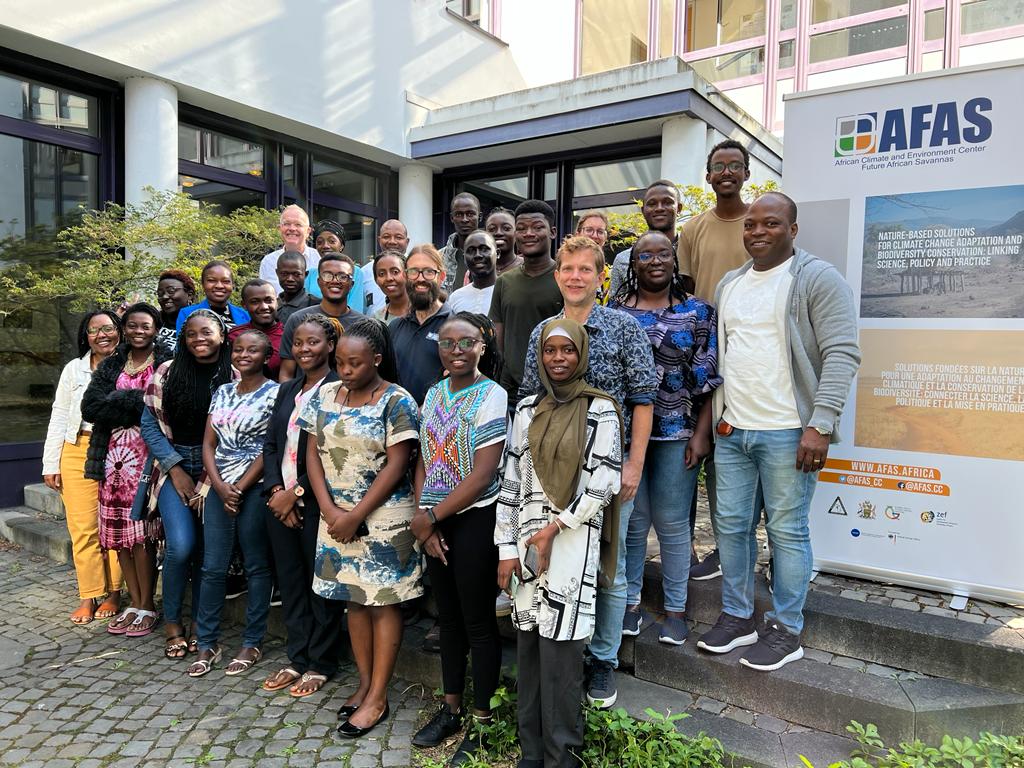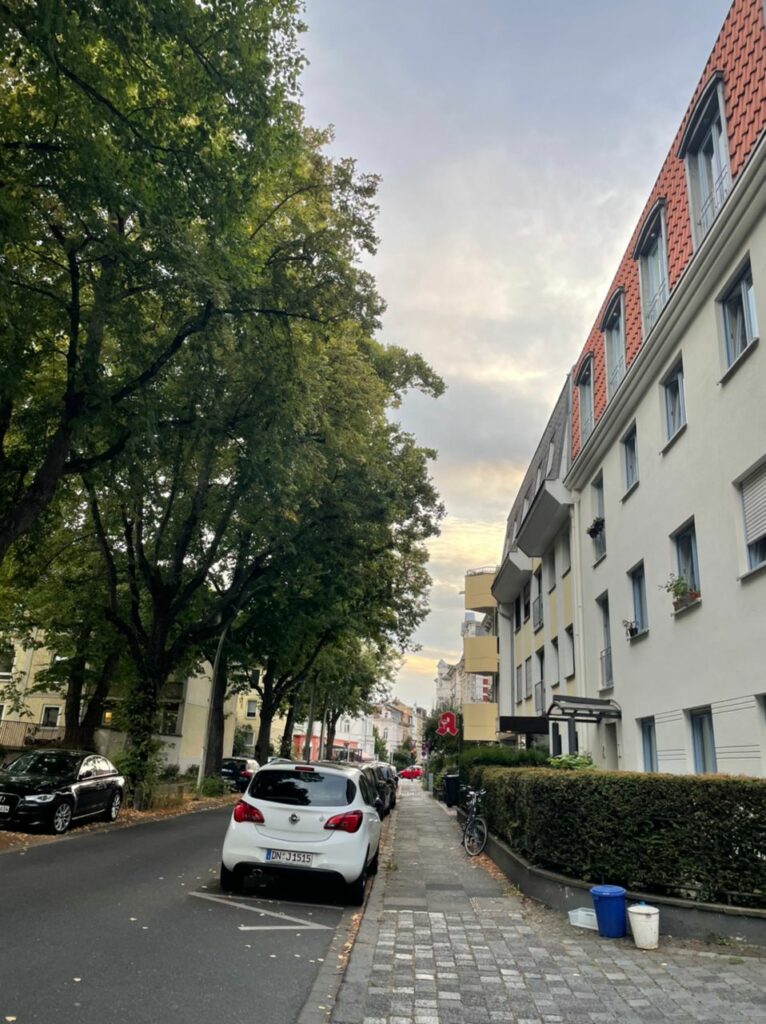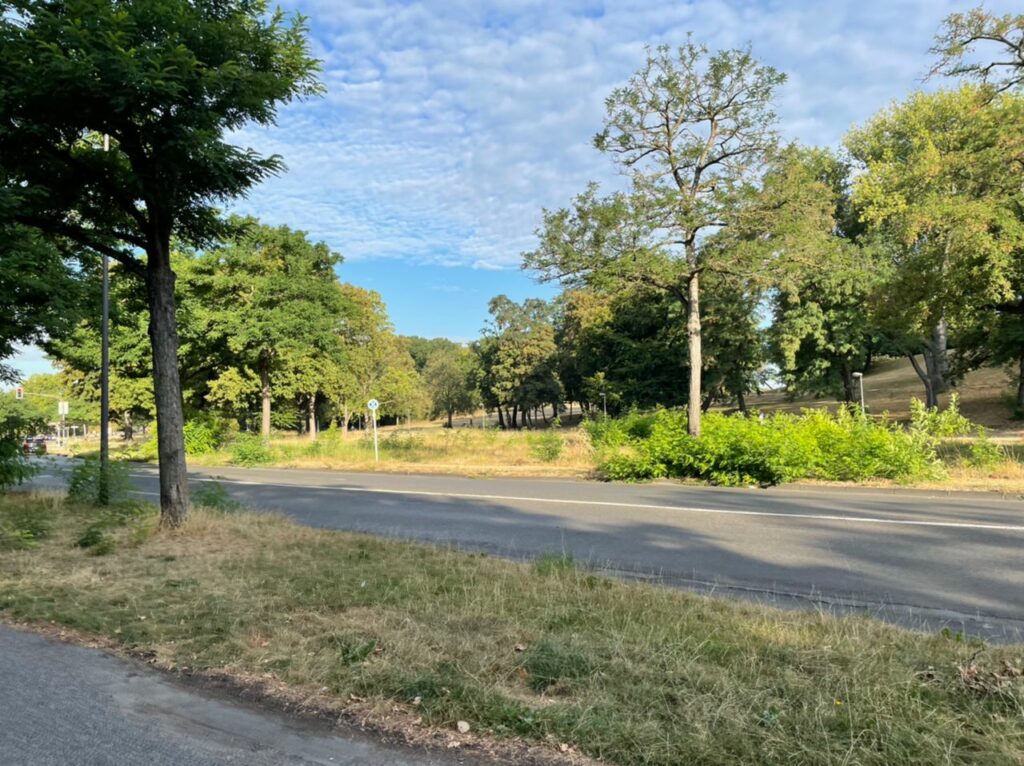

The African Climate and Environment Centre – Future African Savannas (AFAS) is one of the Global climate and environment centers of the German Academic Exchange Service, or DAAD. AFAS presented her Master and PhD students, from her four centers of excellence; the University of Nairobi and the Université Félix Houphouët-Boigny (UFHB) in Abidjan, Côte d’Ivoire, the opportunity to participate in an academic exchange program at the University of Bonn and the University of Cologne, Germany. The exchange program and summer school featured series of seminars, lectures, workshops and excursions, with top academic and industry experts. The program which ran from 19 August 2022 to 11 September 2022 offered really exciting learning and networking opportunities which leaves with us – as students – a myriad of lessons. From interactions with peers and students of partner institutions, to mentorship by the program coordinators, the exchange program was definitely rewarding and will enhance our future engagements with science, policy and practice in our various fields of expertise, moving forward. Beyond the summer school program, we were keen on making observations on efforts being made to address climate change and enhance sustainable development in the country, and possibly drawing transferable lessons relevant to our home countries. Interestingly, worthy of note are the well-planned and developed green spaces observed in the cities, a really efficient electricity-driven rail transport system, the common and well-embraced use of bicycles and scooters, adequate infrastructural provision and considerations for pedestrians, effective waste management and plastic recycling practices, among other things. These observations are considered commendable climate actions and may suggest the existence of effective policies fostering the adoption and sustainability of these practices.
Climate change has been regarded as the gravest threat towards humanity in the 21st century (World Economic Forum, 2022). There has been a global call to cut on emissions either by reduction or removal of greenhouse gases through Climate Action (SDG 13). Part of the emission reduction strategies include cutting down on emissions from the transport sector by shifting towards mass transport means like railway transport and buses, or zero-carbon emitting means like bicycles and electric scooters. The electric rail system within Germany has a vast coverage especially across the cities we visited. As a major means of transportation, it is an effective strategy in reducing emissions from the transport sector. In our opinion, the efficiency and reliability of this transport system must have facilitated its wide acceptance and adoption by the vast majority of the population, and perhaps favourable policies. One interesting temporary provision by the government was a 90-day duration ticket for 9 Euro per month ticket to cushion the effect of inflation on the masses. This, we also think, will encourage the wide use of the commercial rail and bus transport systems. In addition, Germany has become the first country in the whole world to launch several Hydrogen-powered trains to transport passengers across various cities replacing the diesel- powered trains and thus contributing further to her greenhouse gas emission reductions targets. Similar strategies need to be adopted in other countries to address the traffic jam menace and minimize emissions from the transport sector. It is also interesting to see that bicycles and electric scooters are also popular and are commonly preferred by urban residents, particularly those traveling over short distances. These measures thus address the need to reduce the amount of vehicles on the roads, thus in alignment with the global goal to reduce 50% of carbon dioxide emissions from the transport sector by 2050 (UNECE). However, this article acknowledges the fact that plans to phase out coal in Germany has met a couple of challenges. The country had earlier replaced coal-fired electricity with natural gas-powered electricity imported from Russia. However, with the ongoing war between Russia and Ukraine, the European Union has put a sale and import ban on Russia, therefore leading to a restart of operations in coal-fired power stations in Germany. As DW channel reported on the 4th of August, 2022, Germany will import 33 million US tons of hard coal (11% more tons of coal compared to 2021 imports). This will derail the country’s trajectory of phasing out all coal generated electricity by 2038 (See here).

With one of our host institutions being the University of Bonn, we traversed the city of Bonn. The city of Bonn may be described as a typical example of a green city owing to its widespread tree covers and green spaces. Trees are known to offer numerous benefits like carbon sequestration from the atmosphere, oxygen provision, soil erosion control, air filtration, shade during sunny days and help cushion the effect of heat waves, heat stress, etc., among people in urban areas. Such urban greening and designs are important in improving air quality and reducing emissions by removal of carbon from the atmosphere (See here) . Reduced number of vehicles on the roads, coupled with a huge diverse flora species within the city of Bonn, as well as other major cities within the country, contributes to improving air quality and general well-being of the people living in these environments. Such measures can be adopted by other nations globally to minimize greenhouse gas emissions from transport sector, promote good health by minimizing air pollution from the vehicles and also solve on the traffic jam menace as most people will rely on cheap and efficient public means to meet their mobility needs.
With regard to food and waste in the country, we see that some deliberate efforts have been made towards sustainable management. There is considerably highly efficient cooling and storage facilities designed to maintain the freshness of the food commodities preventing them from becoming perishable. Our assumption is that these are results of various government’s interventions which have been put in place to ensure seamless waste management. This also include the use of different waste collection bins situated in designated places within the peoples’ residential areas. The bins, though having the same size, are of different colors where each color is for a specific waste type, mainly for plastics, organic waste, aluminum or tins, glass bottles etc. This helps curb pollution and promote recycling within the country. We were very impressed to see that cities in Germany are ‘ending plastic pollution’ by introducing incentives to people for returning plastics (and bottles) to designated places like supermarkets. Interesting to note, we also returned bottles and in return received 0.25 Euro vouchers per bottle returned. The voucher, as designed, can be and is used to make purchases from the supermarket. This is enough strategy to minimize plastic pollution. The system is easy to work as anyone can earn from plastics use and/or collection, thus promoting a just environment for all. The people have also been observed to adopt these practices, therefore making the city clean and livable. Generally, the plastic menace has been associated with polluting both land and water bodies, and air. To address this, the 5th United Nations Environment Assembly held in Nairobi from 28th Feb to 02 March 2022 themed “Strengthening Actions for Nature to Achieve the Sustainable Development Goals” came up with a new resolution dubbed End Plastic Pollution. The main aim seeks to push the global community to enact and adopt effective measures to eliminate plastic pollution from the environment through a multi-pronged approach and international cooperation (UNEA 5 2022). If the global community embraces such a model as experienced above, then plastic pollution may be a thing of the past.

Much more than the existence of these practices, the compliance and adoption by the masses is worthy of note and emulation. It is evident that the perceptions of the people towards the environment has been very instrumental towards the adoption of these strategies. This is a clear indication that with the right mindset, proper policies are made and thrive. This therefore brings to mind questions about how these can be achieved, factors that may drive these innovations in developing countries, and policies advancing the sustainability of these practices. SDG 13 (Climate Action), in line with SDG 11 (Sustainable Cities and Communities) and SDG 15 (Life on Land) among other goals can be realized knowing that people and nature can exist as one. We believe that the sync between science, policy and practice can drive efforts towards a sustainable future.
Bibliography
Information about the authors:
Joseph N. Ndiba is an AFAS fellow from the 1st master cohort based at the University of Nairobi in Kenya.
(juniorndiba[at]gmail.com / ndibajoseph[at]students.uonbi.ac.ke)
Lawrence Akpoterai is an AFAS fellow from the 1st master cohort based at the University of Nairobi in Kenya.
(lawrenceakpoterai[at]gmail.com /lawrenceakpoterai[at]students.uonbi.ac.ke)
Pius Domokong is an AFAS fellow from the 1st master cohort based at the University of Nairobi in Kenya.
(domokongpius[at]gmail.com / domokongpius[at]students.uonbi.ac.ke)
Adrian Leitoro is an AFAS fellow from the 1st master cohort based at the University of Nairobi in Kenya.
(Adrianleitoro96[at]gmail.com / leitoro[at]students.uonbi.ac.ke)